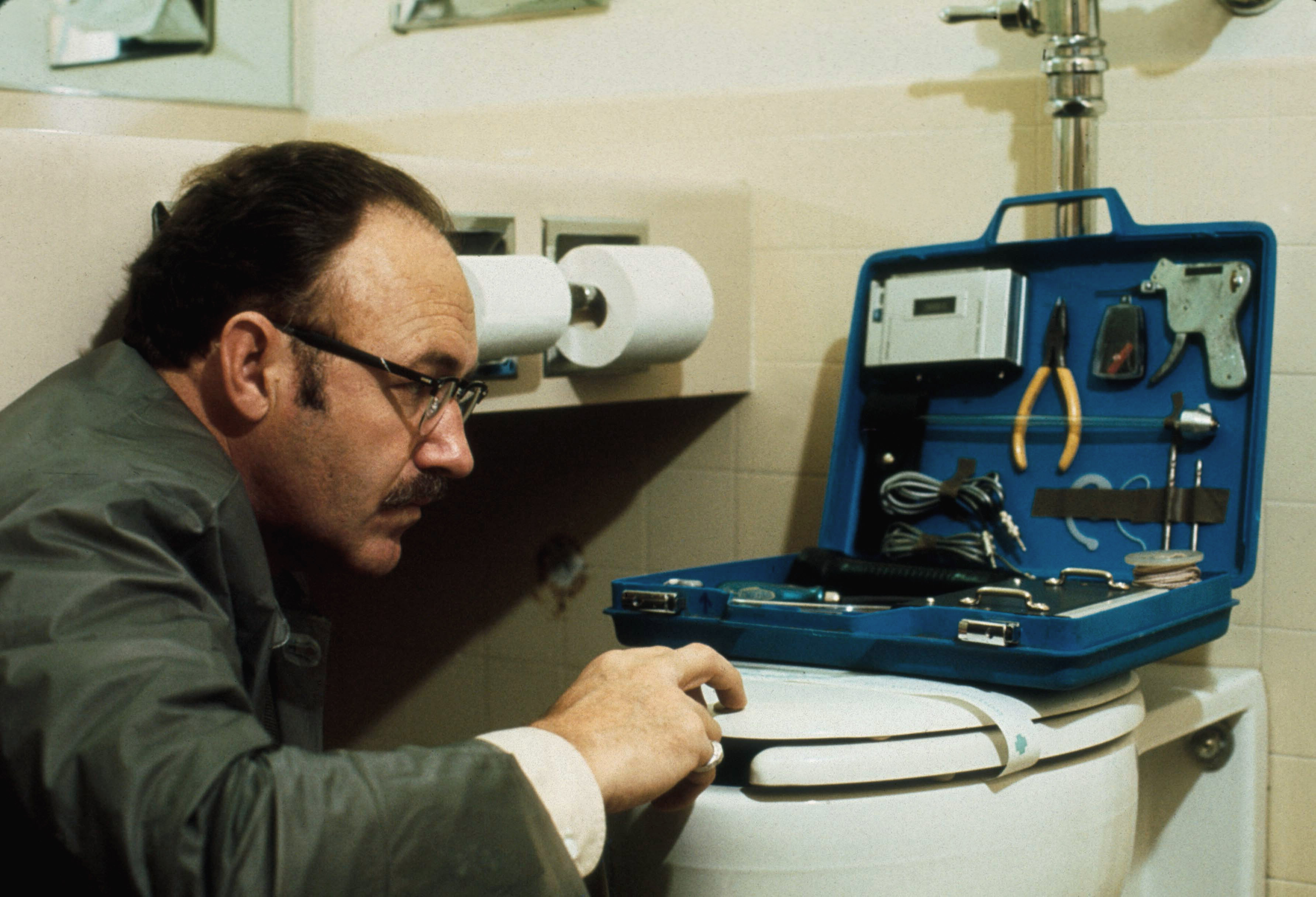Who made The Conversation? In between the first two Godfather films, Francis Ford Coppola wrote and directed this devastating psychological thriller about the downfall of virtuoso surveillance expert Harry Caul (played by Gene Hackman). But in a story that hinges on the inflection of a single word, some might say that it was Walter Murch’s contribution that really made this slice of mid-70s paranoia.
If you’ve read Michael Ondaatje’s 2002 book The Conversations: Walter Murch and the Art of Editing Film, you’ll already know that Murch is one of the most erudite men in American cinema. As film editor and sound mixer on The Conversation he was left to piece together Coppola’s incomplete footage — around 10 days of shooting was outstanding when the director had to start work on The Godfather: Part II.
That book provides insights into how an editor’s vision shapes the story you finally get to see, and whether it actually makes any sense. But there’s a lot more from Murch on one of the two commentary tracks included on the new DVD release. He reflects on how — unusually — the actors were able to listen to a playback of David Shire’s “sweet lonely music” to shape their performances. We also learn that the audio element of that crucial conversation in Union Square between Ann (Cindy Williams) and Mark (Frederic Forrest) had to be rerecorded later in another San Francisco square, due to technical problems.
Coppola’s commentary reveals that the fog-shrouded park sequence with Harry and Ann was originally intended to be the final sequence of the film. But on a bright sunny day in San Francisco the oil from those fog machines caused a commotion in the neighbourhood, the police were called and Coppola got “so fed up” that he ended up wrapping the whole movie. (Apparently, Gene Hackman was very much in character and not in a great mood either.) So, the revelations that spring from what Murch calls “Harry’s Catholic sense of guilt” were moved to an earlier part of the story, and shown in the context of a dream.
Gene Hackman has been retired for a few years now. Watching his beautifully understated performance as “the best bugger on the West Coast” you remember what a great period the early 70s was for him and for American screen acting. (Though I’m not sure I’d include his role in The Poseidon Adventure in a Hackman hit parade.) Clad in his grey, caul-like mac, Hackman’s Harry blends effortlessly into the background most of the time — admired for his expertise but unknowable as a man.











October 29, 2011 at 11:56 pm
Thanks for the tip of reading material – I need to pick up a copy of that book!